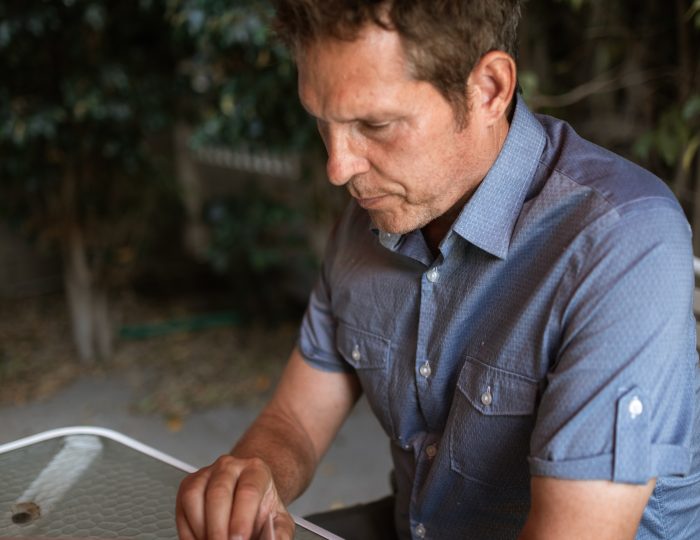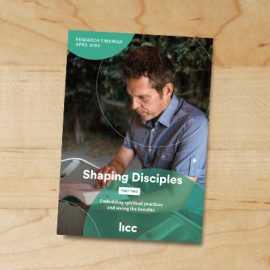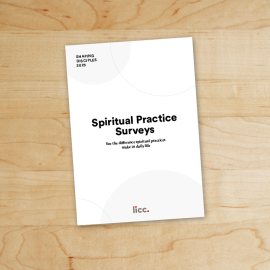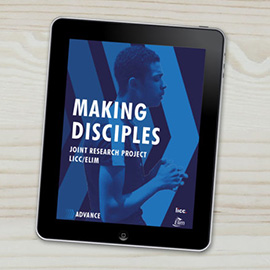Why spiritual practices are the rocket fuel you need to live more like Jesus
Do you want to grow as a disciple of Jesus? Do you want that growth to impact every area of your life – not just who you are on Sunday morning, but how you wo...
Read

Second part of in-depth ‘Shaping Disciples’ research reveals the day-to-day benefits of regular engagement with spiritual practices.

Welcome to the second and final part of LICC’s ‘Shaping Disciples’ research project! If you want to live more like Jesus in your everyday life, this report is for you. And if you want to help others in your church, network, or small group do the same, this report is for you, too.
A spiritual practice is an intentional habit, designed to help disciples deepen their faith, shape their character, and integrate faith into daily life. Our engagement with spiritual practices is one of the most significant influences on how we live out our daily discipleship.
In conducting this research, we wanted to learn more about the effect of different spiritual practices on how Christians live; the ways people engage with various practices; and what factors help them engage with practices regularly. During a previous research project on sustaining whole-life disciplemaking, we sensed this was an area within which there was much space for church communities and individual Christians to grow. So we set out to answer two questions:
Part One focused on the first question. Through a survey of 10 churches across the UK in autumn 2021, we discovered a very strong link between regular engagement with practices, and the extent to which people felt like God was actively working in and through them in their everyday places.
This report is concerned with the second question. Over 12 weeks, we helped 82 Christians embed four spiritual practices into their daily lives. Then, through a series of interviews and questionnaires, we examined the impact those practices had on the way they behaved and the state of their faith.
Read on for 10 of the most interesting things we discovered.



